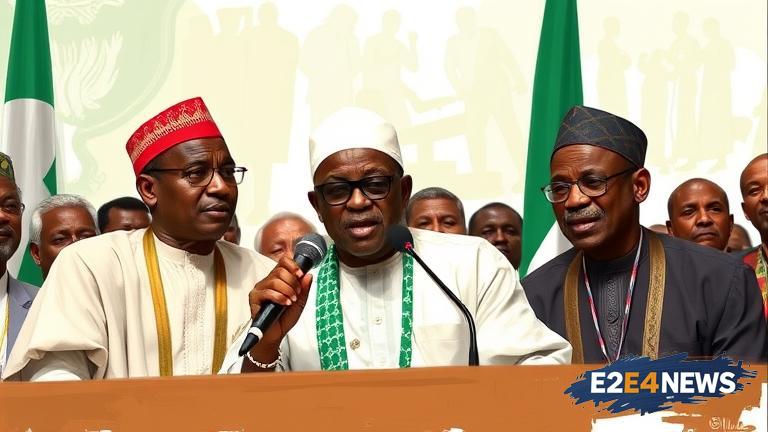The debate over tenure extension in Nigeria has sparked intense controversy, with human rights lawyer Femi Falana weighing in on the issue. Falana slammed the country’s political elite, stating that their discussion on the matter is an insult to Nigerians. He argued that the focus should be on addressing the nation’s numerous challenges, rather than attempting to extend the tenure of elected officials. The lawyer emphasized that the Nigerian people are more concerned about the state of the economy, insecurity, and poverty, rather than the tenure of politicians. Falana’s comments come as the National Assembly is considering a bill that seeks to extend the tenure of local government councilors. The proposed legislation has been met with widespread criticism, with many arguing that it is an attempt to undermine the democratic process. The Nigerian Constitution is clear on the tenure of elected officials, and any attempt to extend it would be a violation of the law. Falana warned that such a move would be resisted by the Nigerian people, who are already frustrated with the current state of governance. The human rights lawyer also criticized the political elite for their lack of accountability and transparency, stating that they are more interested in maintaining their grip on power than in serving the people. The tenure debate has highlighted the deep-seated problems in Nigeria’s political system, including the lack of term limits and the dominance of a few powerful individuals. Falana’s comments have resonated with many Nigerians, who feel that their voices are not being heard. The lawyer’s criticism of the political elite has also sparked a wider debate about the need for reform in Nigeria’s political system. Many are calling for a more inclusive and participatory democracy, where the voices of citizens are taken into account. The Nigerian government has been accused of being out of touch with the people, and the tenure debate has only served to further exacerbate this perception. As the debate rages on, it remains to be seen whether the political elite will listen to the concerns of Nigerians or continue to prioritize their own interests. The Nigerian people are watching with keen interest, and it is likely that the outcome of this debate will have far-reaching consequences for the country’s political landscape. In recent years, Nigeria has faced numerous challenges, including economic stagnation, insecurity, and corruption. The country’s political system has been criticized for being opaque and unaccountable, with many politicians more interested in accumulating wealth and power than in serving the people. The tenure debate has only served to further highlight these problems, and it remains to be seen whether the political elite will take steps to address them. Falana’s criticism of the political elite has been welcomed by many, who see it as a rare example of a public figure speaking truth to power. The lawyer’s comments have also sparked a wider debate about the role of the political elite in Nigerian society, and the need for greater accountability and transparency. As the debate continues, it is likely that the Nigerian people will be watching with keen interest, eager to see whether their voices will be heard. The outcome of this debate will have significant implications for Nigeria’s political future, and it remains to be seen whether the country will embark on a path of reform and renewal. The Nigerian government has a responsibility to listen to the concerns of its citizens and to prioritize their needs and interests. The tenure debate has highlighted the need for a more inclusive and participatory democracy, where the voices of citizens are taken into account. It is only by addressing the deep-seated problems in Nigeria’s political system that the country can hope to achieve true democracy and prosperity. The Nigerian people are eager for change, and it remains to be seen whether the political elite will respond to their demands. The country’s future hangs in the balance, and it is likely that the outcome of this debate will have far-reaching consequences for generations to come.





